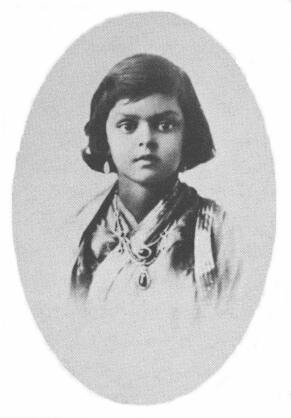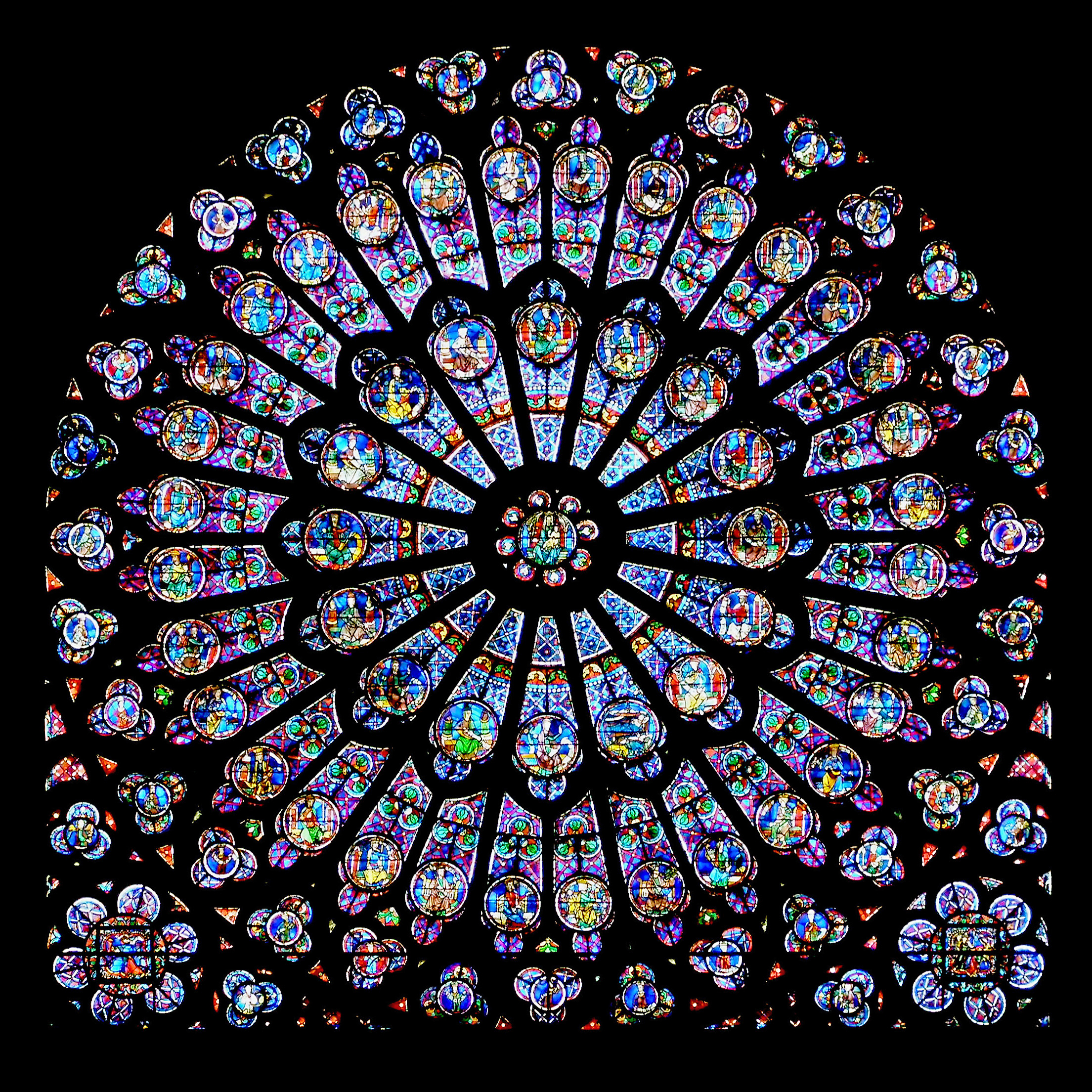|
Maharani Gayatri Devi
Gayatri Devi (born as Princess Gayatri Devi of Cooch Behar; 23 May 1919 − 29 July 2009) was the third Maharani consort of Jaipur from 1940 to 1949 through her marriage to Maharaja Sawai Man Singh II. Following her husband's signature for the Jaipur State to become part of the Union of India and her step-son's assumption of the title in 1970, she was known as Maharani Gayatri Devi, Rajmata of Jaipur. Born in the Hindu Royal family of Cooch Behar her father was Maharaja Jitendra Narayan of Cooch Behar in West Bengal, and her mother was Maratha Princess, Indira Raje of Baroda, the only daughter of Maharaja Sayajirao Gaekwad III, and she was sister to Jagaddipendra Narayan, informally known as 'Bhaiya', who became the Maharajah of Cooch Behar. Following India's independence and the abolition of the princely states, she became a successful politician in the Swatantra Party. Gayatri was also celebrated for her beauty and became something of a fashion icon in her adulthood. S ... [...More Info...] [...Related Items...] OR: [Wikipedia] [Google] [Baidu] |
Sawai Man Singh II
Major General Maharaja Sawai Man Singh II GCSI GCIE (born Sawai Mor Mukut Singh; 21 August 1912 – 24 June 1970) was an Indian prince, government official, diplomat and sportsman. Man Singh II was the ruling Maharaja of the princely state of Jaipur in the British Raj from 1922 to 1947. In 1948, after the state was absorbed into independent India, he was granted a privy purse, certain privileges, and the continued use of the title ''Maharaja of Jaipur'' by the Government of India, which he retained until his death in 1970. He also held the office of Rajpramukh (Governor) of Rajasthan between 1949 and 1956. In later life, he served as Ambassador of India to Spain. He was a notable polo player. Early life Sawai Man Singh II, was born Mor Mukut Singh, the second son of Thakur Sawai Singh of Isarda by his wife Sugan Kunwar, a lady from Kotla village in Uttar Pradesh. His father was a nobleman belonging to the Kachhwaha clan of Rajputs. Mor Mukut grew up in the dusty, walled t ... [...More Info...] [...Related Items...] OR: [Wikipedia] [Google] [Baidu] |
Man Singh II
Major General Maharaja Sawai Man Singh II GCSI GCIE (born Sawai Mor Mukut Singh; 21 August 1912 – 24 June 1970) was an Indian prince, government official, diplomat and sportsman. Man Singh II was the ruling Maharaja of the princely state of Jaipur in the British Raj from 1922 to 1947. In 1948, after the state was absorbed into independent India, he was granted a privy purse, certain privileges, and the continued use of the title ''Maharaja of Jaipur'' by the Government of India, which he retained until his death in 1970. He also held the office of Rajpramukh (Governor) of Rajasthan between 1949 and 1956. In later life, he served as Ambassador of India to Spain. He was a notable polo player. Early life Sawai Man Singh II, was born Mor Mukut Singh, the second son of Thakur Sawai Singh of Isarda by his wife Sugan Kunwar, a lady from Kotla village in Uttar Pradesh. His father was a nobleman belonging to the Kachhwaha clan of Rajputs. Mor Mukut grew up in the dusty, walled t ... [...More Info...] [...Related Items...] OR: [Wikipedia] [Google] [Baidu] |
Baroda
Vadodara (), also known as Baroda, is the second largest city in the Indian state of Gujarat. It serves as the administrative headquarters of the Vadodara district and is situated on the banks of the Vishwamitri River, from the state capital of Gandhinagar. The railway line and National Highway 8, which connect Delhi with Mumbai, pass through Vadodara. The city is named for its abundance of the Banyan (''Vad'') tree. Vadodara is also locally referred to as the ''Sanskari Nagari'' () and ''Kala Nagari'' () of India. The city is prominent for landmarks such as the Laxmi Vilas Palace, which served as the residence of the Maratha royal Gaekwad dynasty that ruled over Baroda State. It is also the home of the Maharaja Sayajirao University of Baroda. Etymology The city in one period was called Chandanavati after the rule of Chanda of the Dodiya Rajputs. The capital was also known as Virakshetra or Viravati (Land of Warriors). Later on, it was known as Vadpatraka or Vadodará, an ... [...More Info...] [...Related Items...] OR: [Wikipedia] [Google] [Baidu] |
Visva-Bharati University
Visva-Bharati () is a public central university and an Institution of National Importance located in Shantiniketan, West Bengal, India. It was founded by Rabindranath Tagore who called it ''Visva-Bharati'', which means the communion of the world with India. Until independence it was a college. Soon after independence, the institution was given the status of a central university in 1951 by an act of the Parliament. Overview ''The Hindu'' writes, "Santiniketan in many ways is still quite different compared to other universities in the country. Located at Bolpur in Birbhum district of West Bengal, the university still has the rural trappings that Tagore dreamt of. The classes are still held in the open under the shade of huge mango trees and students and tutors alike still travel by cycles to keep pollution at bay. The old buildings, even those that were made up of mud walls and thatched roofs, are still intact and find a place within the main campus. While some are preserved fo ... [...More Info...] [...Related Items...] OR: [Wikipedia] [Google] [Baidu] |
Patha Bhavana
Patha Bhavana is an institution of primary and secondary education in Santiniketan, West Bengal, India. Founded by Nobel laureate Rabindranath Tagore in 1901, starting with only five students, the school is characterized by its philosophy of learning with the heart in closeness to nature without any superficial barriers between teachers and students, as opposed to the strict, repetitive and the rote learning system that was mainstream during Tagore's childhood. Often referred to as an ashram system, initially what started out as this school, later grew into what is now Visva-Bharati University. It is one of the two primary and secondary school affiliated with the Visva-Bharati University; the other being Siksha Satra. Extracurricular activities ''Sahitya Sabhas'' are literary and musical evenings, usually taking place each Tuesday, in which students share their own literary works, dance, music and short skits among themselves and with the community. The school also presents plays ... [...More Info...] [...Related Items...] OR: [Wikipedia] [Google] [Baidu] |
Glendower Preparatory School
Glendower Prep School is an independent preparatory school in South Kensington, London for girls aged 4 to 11. History Glendower Prep was founded in 1895 by Miss Lloyd and Miss Cornwall at 103A Fulham Road and was originally called "Cornwall and Lloyd School". The school shared premises with Dunn and Co the hatters and The Sports Motor Car Co. At some point between 1902 and 1918, the school moved to 5 Glendower Road and changed its name to Glendower School. After 2 years in Glendower Road, the school relocated to 25 - 27 Cromwell Road. The school remained at this site from 1920 until 1939 when the Second World War forced an evacuation to Cornwall. Glendower moved into 87 Queen's Gate in 1947 where it has remained with some extension and expansion until the present day. the headmistress is Ms Kingsmill Moore. From 2012-2019, the headmistress was Ms Sarah Knollys. Etymology The name Glendower itself is an anglicised pronunciation of the Welsh prince's name Owain Glyndŵr. No ... [...More Info...] [...Related Items...] OR: [Wikipedia] [Google] [Baidu] |
Yuvaraja
Yuv(a)raj(a) (Sanskrit: युवराज) is an Indian title for the crown prince, and the heir apparent to the throne of an Indian (notably Hindu) kingdom or (notably in the Mughal Empire or British Raj) princely state. It is usually applied to the eldest son of a Raja (King) or Maharaja (Great King), a kshatriya chief ruling one of the former kingdoms or vassal-rank princely states. Individuals * Yuvraj Singh (politician), was an Indian Politician and a MLA from Hamirpur constituency from Uttar Pradesh. * Yuvaraj Dhayalan, Tamil film assistant director * Yuvraj Hans, a Punjabi actor and singer * Yuvraj Singh, an Indian cricketer * Yuvraj Walmiki, an Indian professional field hockey player *Yuvraj Khanal, a professional student Other uses * ''Yuvvraaj'', a Bollywood movie by Subhash Ghai featuring Salman Khan Abdul Rashid Salim Salman Khan (; 27 December 1965) is an Indian actor, film producer, and television personality who works in Hindi films. In a film career spa ... [...More Info...] [...Related Items...] OR: [Wikipedia] [Google] [Baidu] |
Ileus
Ileus is a disruption of the normal propulsive ability of the intestine. It can be caused by lack of peristalsis or by mechanical obstruction. The word 'ileus' is from Ancient Greek ''eileós'' (, "intestinal obstruction"). The term 'subileus' refers to a partial obstruction. Signs and symptoms Symptoms of ileus include, but are not limited to: * moderate to severe, diffuse abdominal pain * constipation * abdominal distension * nausea/vomiting, especially after meals * vomiting of bilious fluid * lack of bowel movement and/or flatulence * excessive belching Cause Decreased propulsive ability may be broadly classified as caused either by bowel obstruction or intestinal atony or paralysis. However, instances with symptoms and signs of a bowel obstruction occur, but with the absence of a mechanical obstruction, mainly in acute colonic pseudo-obstruction, Ogilvie's syndrome. Bowel obstruction A bowel obstruction is generally a mechanical obstruction of the gastrointestinal trac ... [...More Info...] [...Related Items...] OR: [Wikipedia] [Google] [Baidu] |
Indira Gandhi
Indira Priyadarshini Gandhi (; Given name, ''née'' Nehru; 19 November 1917 – 31 October 1984) was an Indian politician and a central figure of the Indian National Congress. She was elected as third prime minister of India in 1966 and was also the first and, to date, only female prime minister of India. Gandhi was the daughter of Jawaharlal Nehru, the first prime minister of India. She served as prime minister from January 1966 to March 1977 and again from January 1980 until Assassination of Indira Gandhi, her assassination in October 1984, making her the second longest-serving Indian prime minister after her father. During Nehru's premiership from 1947 to 1964, Gandhi was considered a key assistant and accompanied him on his numerous foreign trips. She was elected president of the Indian National Congress in 1959. Upon her father's death in 1964, she was appointed as a member of the Rajya Sabha (upper house) and became a member of Lal Bahadur Shastri ministry, Lal ... [...More Info...] [...Related Items...] OR: [Wikipedia] [Google] [Baidu] |
Classical Beauty
Beauty is commonly described as a feature of objects that makes these objects pleasurable to perceive. Such objects include landscapes, sunsets, humans and works of art. Beauty, together with art and taste, is the main subject of aesthetics, one of the major branches of philosophy. As a positive aesthetic value, it is contrasted with ugliness as its negative counterpart. Along with truth and goodness it is one of the transcendentals, which are often considered the three fundamental concepts of human understanding. One difficulty in understanding beauty is because it has both objective and subjective aspects: it is seen as a property of things but also as depending on the emotional response of observers. Because of its subjective side, beauty is said to be "in the eye of the beholder". It has been argued that the ability on the side of the subject needed to perceive and judge beauty, sometimes referred to as the "sense of taste", can be trained and that the verdicts of experts ... [...More Info...] [...Related Items...] OR: [Wikipedia] [Google] [Baidu] |



.jpg)


